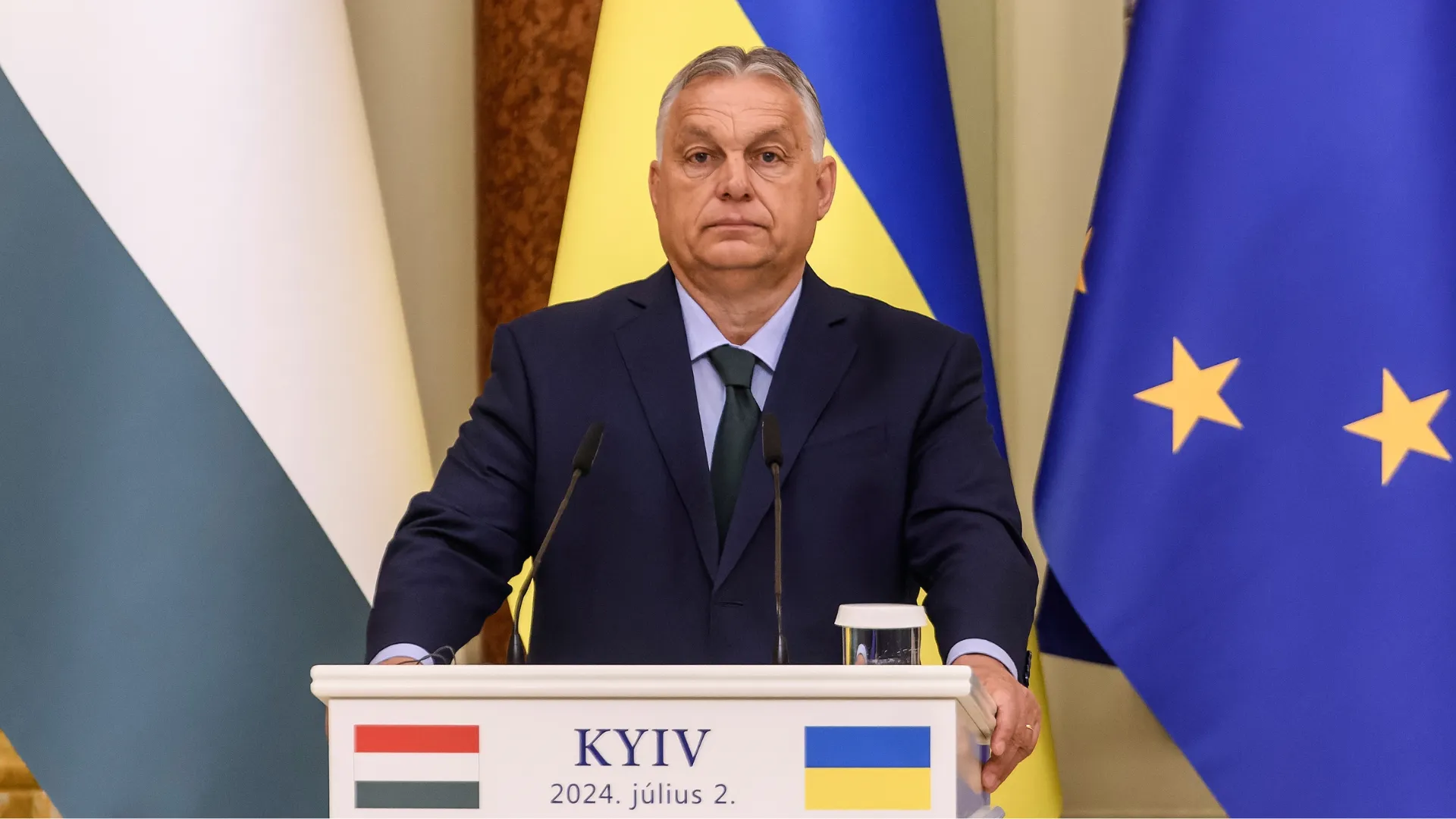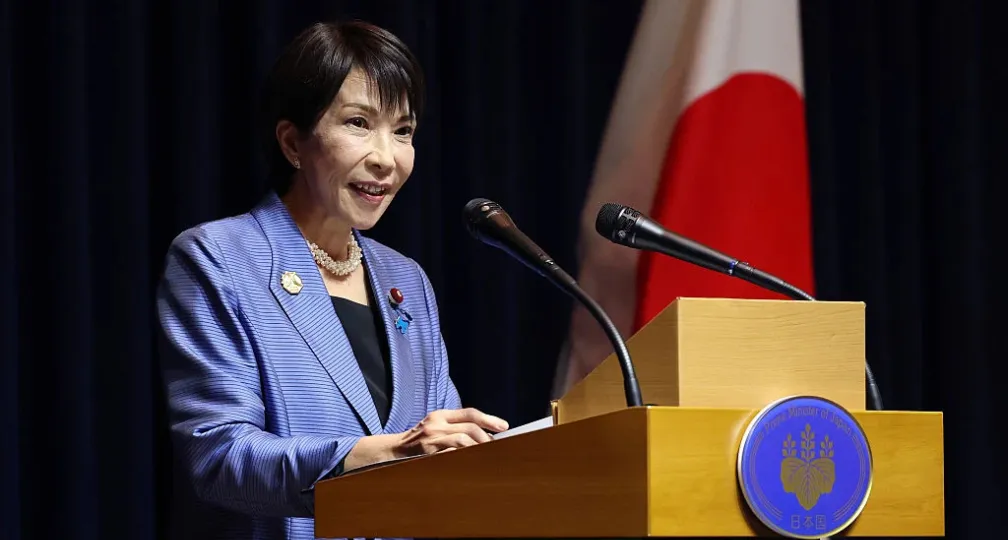IOG Economic Intelligence Report (Vol. 3 No. 24)
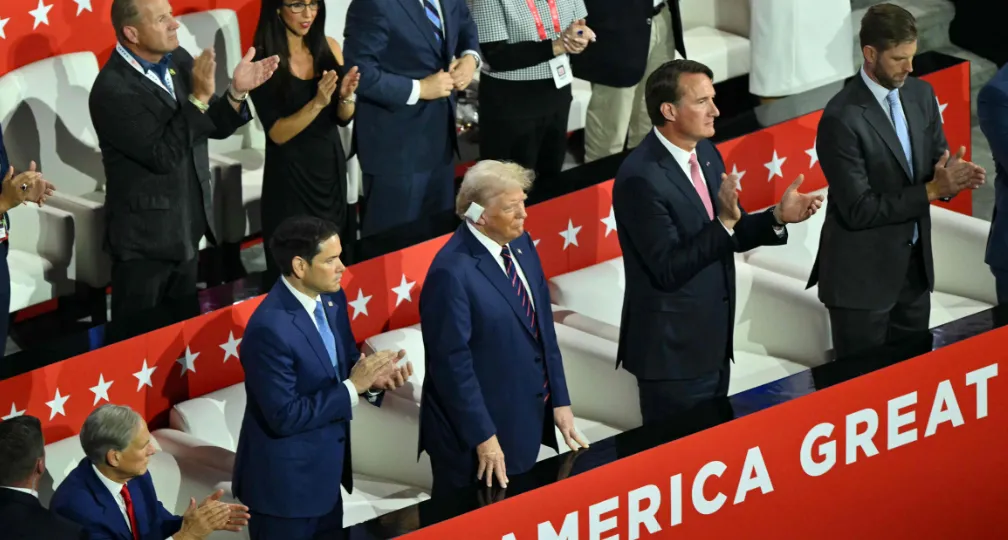
The latest regulatory developments on economic security & geoeconomics
By Paul Nadeau, Visiting Research
Fellow, Institute of Geoeconomics (IOG)
Tariff Man Announces Tariffs: Donald Trump announced on the Truth Social social media network that on the first day of his presidency he would impose 25 percent tariffs on imports from Canada and Mexico unless they crack down on illegal immigration and the illicit drug trade into the United States, and “an additional 10% tariff, above any additional tariffs” of imports from China. The proposed tariff would violate the U.S.-Mexico-Canada Agreement (USMCA), which is set to expire in 2026 unless renewed by the three parties. The tariffs will pose challenges globally if imposed because of the auto and electronics manufacturers who use Mexico’s free trade with the United States as a gateway to the U.S. market. Experts generally agree that the announcement is an effort to gain leverage in the USMCA renewal negotiations, while also emphasizing the economic damage that would come to all countries involved if Trump follows through on the tariff plans.
Trump Announces Bessent to Be Treasury Secretary: President-elect Donald Trump has nominated investor Scott Bessent to be Treasury Secretary in the coming administration. Bessent, who has spent his career in finance, ran a hedge fund, and is well-known on Wall Street, is known to be an advocate of tax reform and deregulation, and is seen by observers as someone who may push back against Trump’s tariff plans.
Greer Reported to Be Trump’s Pick for USTR: Donald Trump has nominated Jamieson Greer as U.S. Trade Representatives for the next administration. Greer served as former USTR Robert Lighthizer’s chief of staff during the first Trump administration, as is seen by some as a protege of Lighthizer, having also worked for him at the law firm Skadden, Arps, Slate, Meagher & Flom LLP. Greer was involved in efforts during Trump’s first administration to design tariffs towards China and in the “Phase One” negotiations agreed to in January 2020. He also participated in bilateral free trade agreement (FTA) negotiations with Japan during the first Trump administration. In an interview with Nikkei, he said that the Trump administration continues to prioritize reducing Japan’s trade surplus with the United States and to increase U.S. agricultural exports to the United States.
Ishiba Pushes Biden on Nippon Steel Agreement: Japan’s Prime Minister Shigeru Ishiba sent a letter to U.S. President Joe Biden asking him to approve Nippon Steel’s acquisition of U.S. Steel. The review of the agreement by the Committee on Foreign Investment in the United States (CFIUS) is due to be released in December. Ishiba’s predecessor, Fumio Kishida, avoided direct comment on the proposed acquisition, saying it was a matter between private companies and to avoid the appearance of interfering on the election, and Ishiba’s direct appeal comes with the question of Biden’s successor finally settled and looking ahead to the presidency of Donald Trump in January 2025, who has explicitly opposed the deal.
Spending the Last of the CHIPS Act Funds: The Biden administration finalized a $6.6 billion CHIPS Act award towards Taiwan’s TSMC $65 billion investment to construct semiconductor fabrication plants in Arizona first announced in 2020. Lael Brainard, director of the National Economic Council, told reporters that “For the next two months, you’ll continue to see Commerce finalizing more awards, ensuring progress made to date will carry forward through the end of the decade”, indicating the Biden administration’s intention to lock in as much CHIPS Act funding as possible before Donald Trump, who has been critical of the CHIPS Act, comes to office on January 20.
Japan to Fund Country’s Advanced Tech Industry: On November 22, Japan’s Prime Minister Shigeru Ishiba unveiled a ¥10 trillion ($65 billion) plan to support Japan’s semiconductor and artificial intelligence industries as part of the government’s comprehensive economic package. The plan specifically targets specifically targets chip foundry venture Rapidus and other producers of AI chips.
Treasury Finalizes New CFIUS Rules: On November 18, the U.S. Treasury Department issued a final rule substantively updating the monitoring and enforcement provisions for the Committee on Foreign Investment in the United States (CFIUS) following the enactment of the Foreign Investment Risk Review Modernization Act of 2018. The final rules are mostly consistent with a guidance issued in April 2024 and include a shorter timeline to negotiate mitigation proposals issued by CFIUS, the ability for CFIUS to request a broader range of information in its investigations, and greater penalties for each violation.
U.S. Department of Homeland Security Announces New Restrictions on Xinjiang-Produced Goods: The U.S. Department of Homeland Security announced on November 22 that it would begin to restrict goods from an additional 29 Chinese companies due to concerns over forced labor practices, bringing a total of 107 Chinese companies whose goods are restricted from entering the United States under the Uyghur Forced Labor Prevention Act (UFLPA) Entity List. Under UFLPA, goods are prohibited from entering the United States if the producing companies are found to be sourcing materials from Xinjiang or working with the government of Xinjiang to recruit, transport, transfer, harbor, or receive Uyghurs, Kazakhs, Kyrgyz, or members of other persecuted groups from the region.
China to Impose Export Controls on Critical Minerals: China’s Ministry of Commerce announced it would tighten export controls on dual-use technologies and critical minerals such as tungsten, graphite, magnesium, and aluminum alloys which are commonly used in advanced technology supply chains. China currently controls more than 80 percent of the world’s supply of tungsten and about 90 percent of global magnesium production, materials used in defense technology, weapons, aviation equipment, and spacecraft. The announcement is believed to be in anticipation of president-elect Donald Trump’s increased tariffs on China.
EU Revises its Forestry Supply Chain Bill: The European Union (EU) is due to delay the implementation of a law to improve due diligence requirements in the forest industry. The EU Deforestation Regulation (EUDR) was due to go into effect on December 30 but has been postponed for one year to allow companies more time to prepare for implementation. Under the law, companies would need to demonstrate that palm oil, cattle, wood, coffee, cocoa, rubber and soya and derived products did not originate from recently deforested land and have not contributed to forest degradation since 2020. The European Parliament also agreed to exempt from due diligence any commodities from countries where deforestation is not a threat.
South Korea Added to Treasury’s Currency Monitoring List: The U.S. Treasury Department added South Korea to a “monitoring list” of major trading partners whose currency practices warrant closer scrutiny over its large current account surplus. Countries are added to the list if they meet two of the three following criteria: a trade surplus with the United States greater than $15 billion, a global account surplus over 3 percent of GDP, and consistent, one-way intervention in foreign exchange markets. China, Japan, Taiwan, Singapore, Vietnam and Germany are also on the monitoring list, while Malaysia was removed in the same report announcing South Korea’s inclusion.
Trump 2.0: Cabinet nominees and economic foreign policy
By Andrew Capistrano,
Visiting Research Fellow, Institute of Geoeconomics (IOG)
Less than a month after becoming the second US president to win non-consecutive terms, President-elect Donald Trump has moved quickly to announce his Cabinet nominees. Some are unconventional, if not controversial, raising questions over whether such picks will be able to make it through the Senate confirmation process. Already, Trump’s first choice for Attorney General, Congressman Matt Gaetz, decided to withdraw his name from consideration when it became clear he would face Senate opposition. He has been replaced with former Florida Attorney General Pam Bondi, and attention has now turned to other unconventional nominees—like Pete Hegseth for Secretary of Defense, Robert F. Kennedy, Jr. for Secretary of Health and Human Services, and Tulsi Gabbard for Director of National Intelligence—who may face challenges in the Senate.
But there has been much less controversy surrounding Senator Marco Rubio, nominated for Secretary of State, and hedge fund manager Scott Bessent, nominated for Secretary of the Treasury. Both are widely expected to be confirmed. This suggests that, in contrast to the individuals Trump wants to manage domestic policy priorities like slimming the federal bureaucracy or enforcing immigration laws on the US southern border, for economic and foreign policy Trump understands the importance of appointing more conventional individuals who are capable of reassuring markets and international partners.
Moreover, with these nominations the policy outlines of ‘Trump 2.0’ are beginning to come into view. It is possible that a more coherent merging of foreign and economic policy is taking place, wherein strengthening the domestic economy, industrial base, and energy security are key goals for US diplomatic strategy. In fact, a case could be made that such an ‘economic foreign policy’ may be the centerpiece of the second Trump administration’s approach to international affairs in general.
Although Rubio has been called a ‘neoconservative’ and has espoused foreign policy positions that do not sit will with the MAGA wing of Trump’s coalition (e.g., supporting Ukraine), over the past eight years he has become one of the key Senators aligned with an emerging pro-labor and pro-manufacturing wing in the Republican Party. Crucially, one of the other key Senators in this grouping was J.D. Vance, the Vice President-elect. Rubio and Vance have taken part in events sponsored by American Compass, a conservative think tank led by Oren Cass that challenges the Republican orthodoxy on free trade and industrial policy. The most notable feature of this emerging Republican grouping is their ability to see foreign policy—especially toward China—as fundamentally linked to economic policy, eschewing the post-Cold War tendency to view international strategy in military terms and economics as a question of market efficiency.
The Rubio pick indicates, as expected, a more forceful China policy in the next administration. In addition to churning out numerous policy papers supporting the re-shoring of US manufacturing and the need to address the persistent US trade deficit, Rubio’s office has consistently highlighted the central challenge that China poses to US interests both geopolitically and economically. He will be complimented by Trump’s National Security Advisor designee Mike Waltz, a Congressman and US Army Reserve Colonel, who has taken a similar hardline position on China in more traditional national security terms. Both agree with Trump on basing US strategy around the concept of “peace through strength”.
In short, Rubio’s nomination is interesting because his views on economic security are closer to Trump’s position than his views on US foreign policy as a whole. And Rubio may even be better at articulating an ‘economic foreign policy’ to allies and partners than the president. Like Vance, he has advocated for reinvigorating the US industrial base and confronting China’s persistent trade surplus with the US, using tariffs if necessary, in numerous essays, speeches, and policy proposals that are generally more concrete than Trump’s own rhetorical flourishes.
Trump’s recently announced economic team also points toward an ‘economic foreign policy’ centered on trade, although the main criteria for being picked appears to have been a perceived ability to calm markets about these policies. For example, Bessent argued in a 15 November op-ed that tariffs have a “long and storied history” as a means to increase government revenues and protect strategically important industries. He then pointed out that Trump (correctly, in his view) will also use tariffs as a negotiating instrument with US trade partners, particularly to address China’s trade surplus, which Bessent argues created national security vulnerabilities and hollowed out the US industrial base. On this point he aligns completely with Rubio and Vance.
In other words, Bessent does not see tariffs as an absolute good the way Trump has portrayed them, only as a means to an end. Thus for other trade partners, he has suggested leveraging tariff threats to obtain concessions, such as getting allies to increase defense spending and incentivizing cooperation on illegal immigration. Trump has already begun his attempt to gain negotiating leverage in the latter case, threatening to impose 25 percent tariffs on Mexico and Canada and a 10 percent tariff on China if they do not work to end fentanyl trafficking and stem migrant flows into the US.
Rounding out Trump’s economic team are other individuals who are willing to use trade policy as a means to achieve other ends. This includes Commerce Secretary nominee Howard Lutnick, a Wall Street banker who has advocated for using tariffs in this way, and US Trade Representative (USTR) nominee Jamieson Greer, a protégé of Trump’s first term USTR Robert Lighthizer. According to media reports, Lighthizer may return to the White House as Trump’s ‘Trade Czar’, in charge of coordinating trade policy across the Departments of State, Commerce, and Treasury, as well as the Office of the USTR.
But launching trade wars will not be the first priority of this economic team. Rather, their mandate is to limit inflation and improve US growth prospects, and trade policy will be made to comport with these ends. Japanese readers may find it interesting that Bessent has drawn inspiration from the ‘three arrows’ that former Prime Minister Shinzo Abe set out in his ‘Abenomics’ agenda. Bessent’s ‘3-3-3 plan’ is somewhat different, in that his ‘arrows’ are cutting the US budget deficit to 3 percent of GDP, adding the equivalent of 3 million barrels of oil per day to US domestic energy production, and increasing the annual GDP growth rate to 3 percent. With respect to the linkage between economics and foreign policy, Bessent has defended his ‘3-3-3 plan’ in national defense terms: unless the deficit is reduced and growth is boosted, current debt levels and excessive spending would constrain the government in the event of an international crisis or war.
Of course, much will depend on the political and economic environment Trump actually faces after his inauguration, and thus it is premature to make detailed policy predictions for his second term. It would be more useful at this point to offer an initial assessment of what Trump’s nominees indicate about the character of his second administration.
First, Trump’s nominees signal that he is set on disruption. This includes disrupting the Washington establishment and its conventional wisdom about political norms, as well as the bureaucratic apparatus that Trump views as inefficient at best—and enemies of his agenda at worst. This disruptive element could make Trump into a transformative President, solidifying the new Republican coalition and extending it as he enacts his agenda, or it could trigger pushback from the establishment that limits his effectiveness. Because he is barred from running for a third term, Trump will essentially be a ‘lame duck’ following the 2026 midterm elections; therefore, he will need to move fast to disrupt the institutions and make strategic choices about what he can or cannot achieve in such a short period.
Second, it is apparent that Trump’s criteria for nominating someone diverged significantly from a typical Cabinet appointment in the recent past, relying less on familiarity with each respective government department than on perceived loyalty to the president. Such loyalty will minimize the chances of repeating the personnel problems that defined his first term. Recall that Trump came to Washington in 2017 without any government experience or a trusted team to staff his administration, and thus ended up appointing several establishment individuals that either did not fully believe in his agenda or else actively sought to constrain his more disruptive actions.
The emphasis on disruption and loyalty are more pronounced on the domestic policy side, as Trump saw the Washington bureaucracy working against him and the Justice Department probe into alleged Russian election collusion as distractions during his first term. Despite Gaetz’s withdrawal, for example, Bondi is nearly as loyal to Trump and will likely be more effective as Attorney General given her experience. But even for foreign and economic policy, unlike in 2017 Trump’s second-term nominees have been drawn from candidates who openly supported his agenda during the campaign. There is a rumor in Washington that Trump offered Rubio the Secretary of State position in exchange for not running against him in the Republican primary, and that over the past year the two men have already discussed how to advance a diplomatic strategy to achieve Trump’s second-term objectives. Similarly, Bessent has defended Trump’s unorthodox approach to economic policy to key Wall Street actors that expressed doubt toward his agenda.
Finally, after attempting to get any media attention he could during the campaign, Trump has been largely unseen during the nomination process. This may be attributed to his Chief of Staff designee, Susie Wiles. She is an experienced political operator, but more importantly is trusted by Trump and, in contrast to the 2016 and 2020 campaigns, advised him to restrain his most bombastic tendencies when not in ‘rally mode’. The question is whether Trump will govern this way.
For this governing style to be effective, Trump would need a Cabinet loyal to his disruptive agenda, and he looks have now nominated such a Cabinet. And to be a transformative president, Trump has to get substantive change done early, particularly on the economy, immigration, and energy. However, the nominees who will be charged with implementing an ‘economic foreign policy’ do not appear to be set on radically recasting the international trade system or abandoning US allies. Though it is too soon to be sure, the Trump 2.0 team looks to be more focused on disruption at home than abroad.
(Photo Credit: AFP/ Aflo)
Disclaimer: The views expressed in this IOG Economic Intelligence Report do not necessarily reflect
those of the API, the Institute of Geoeconomics (IOG) or any other organizations to which the author belongs.
API/IOG English Newsletter
Edited by Paul Nadeau, the newsletter will monthly keep up to date on geoeconomic agenda, IOG Intelligencce report, geoeconomics briefings, IOG geoeconomic insights, new publications, events, research activities, media coverage, and more.
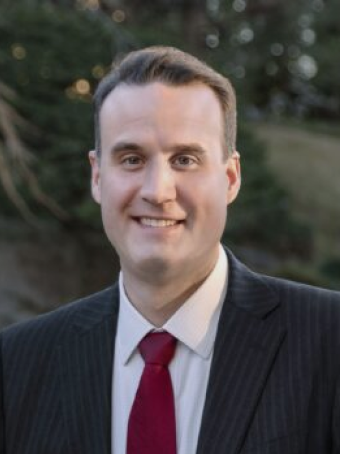
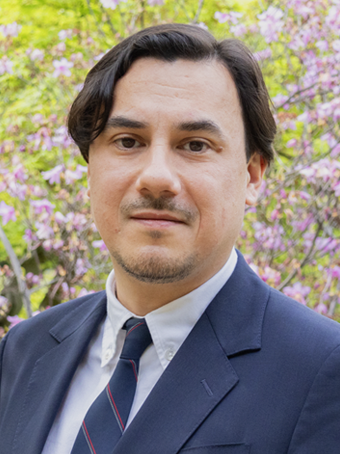

Visiting Research Fellow
Paul Nadeau is an adjunct assistant professor at Temple University's Japan campus, co-founder & editor of Tokyo Review, and an adjunct fellow with the Scholl Chair in International Business at the Center for Strategic and International Studies (CSIS). He was previously a private secretary with the Japanese Diet and as a member of the foreign affairs and trade staff of Senator Olympia Snowe. He holds a B.A. from the George Washington University, an M.A. in law and diplomacy from the Fletcher School at Tufts University, and a PhD from the University of Tokyo's Graduate School of Public Policy. His research focuses on the intersection of domestic and international politics, with specific focuses on political partisanship and international trade policy. His commentary has appeared on BBC News, New York Times, Nikkei Asian Review, Japan Times, and more.
View Profile
Visiting Research Fellow
Andrew Capistrano is Director of Research at PTB Global Advisors, a Washington DC-based geopolitical risk consulting firm. Specializing in economic competition between the US/EU and China, he analyzes how trade, national security, and industrial policies impact markets, and his firm’s clients include Japanese corporations and government agencies. He previously worked in Tokyo at the US Embassy’s American Center Japan and as a research associate at the Rebuild Japan Initiative Foundation / Asia-Pacific Initiative. Dr Capistrano holds a BA from the University of California, Berkeley; an MA in political science (international relations and political economy) from Waseda University; and a PhD in international history from the London School of Economics. His academic work focuses on the diplomatic history of East Asia from the mid-19th to the mid-20th centuries, applying game-theoretic concepts to show how China's economic treaties with the foreign powers created unique bargaining dynamics and cooperation problems. During his doctoral studies he was a research student affiliate at the Suntory and Toyota International Centres for Economics and Related Disciplines (STICERD) in London.
View Profile-
 Fed-Treasury Coordination as Economic Security Policy2026.02.13
Fed-Treasury Coordination as Economic Security Policy2026.02.13 -
 What Takaichi’s Snap Election Landslide Means for Japan’s Defense and Fiscal Policy2026.02.13
What Takaichi’s Snap Election Landslide Means for Japan’s Defense and Fiscal Policy2026.02.13 -
 Challenges for Japan During the U.S.-China ‘Truce’2026.02.12
Challenges for Japan During the U.S.-China ‘Truce’2026.02.12 -
 India and EU Sign Mother of All Deals2026.02.09
India and EU Sign Mother of All Deals2026.02.09 -
 Orbán in the Public Eye: Anti-Ukraine Argument for Delegitimising Brussels2026.02.04
Orbán in the Public Eye: Anti-Ukraine Argument for Delegitimising Brussels2026.02.04
 Orbán in the Public Eye: Anti-Ukraine Argument for Delegitimising Brussels2026.02.04
Orbán in the Public Eye: Anti-Ukraine Argument for Delegitimising Brussels2026.02.04 When Is a Tariff Threat Not a Tariff Threat?2026.01.29
When Is a Tariff Threat Not a Tariff Threat?2026.01.29 Fed-Treasury Coordination as Economic Security Policy2026.02.13
Fed-Treasury Coordination as Economic Security Policy2026.02.13 Oil, Debt, and Dollars: The Geoeconomics of Venezuela2026.01.07
Oil, Debt, and Dollars: The Geoeconomics of Venezuela2026.01.07 India and EU Sign Mother of All Deals2026.02.09
India and EU Sign Mother of All Deals2026.02.09






